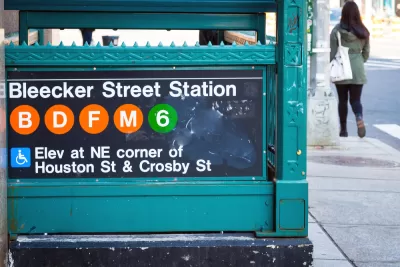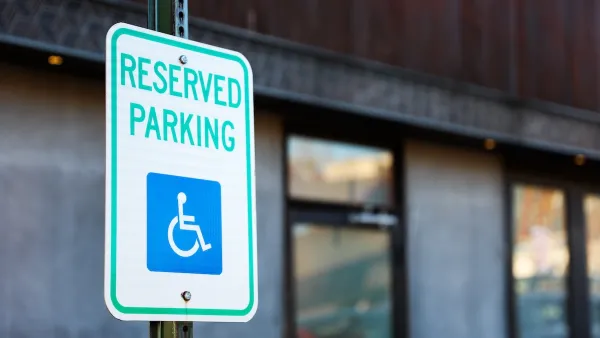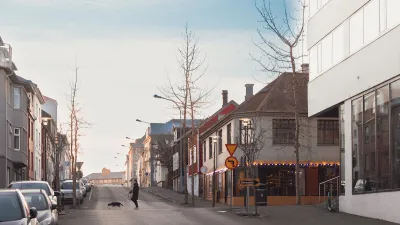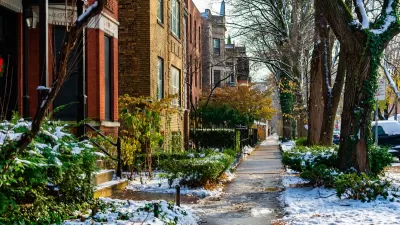Two class action lawsuits take New York’s inaccessible metro system to task.

According to state and federal lawsuits filed April 20, New York's Metropolitan Transportation Authority's lack of elevators and poor maintenance practices constitute discrimination against people with disabilities.
"More than 75 percent of the city’s 472 subway stations have no elevators, lifts or other alternatives to stairs," giving the MTA the lowest accessibility rate of the 10 largest transit systems in the country, according to the New York Times.
The plaintiffs, represented by Disability Rights Advocates, want the court to require the MTA to change the way it deals with elevator maintenance and to develop a long-term plan to improve the system's accessibility.
In March, the Times ran a feature on how the state of the subway system impacts disabled residents, sometimes shutting them out of public life. One plaintiff who uses a wheelchair said, "Because of the lack of elevators, my disability really comes to the forefront in terms of what activities I can engage in, in the city."
He takes a different subway line uptown after work in order to catch another line back to Brooklyn to reach a station with an elevator for southbound commuters. He said he regularly cancels social engagements if he finds there is no viable way to travel to a station with a working elevator. And he has counted more than 200 elevator failures in the last two and a half years — about one for every eight trips he takes, he said.
An MTA spokesperson said the agency is spending $1 billion to bring 25 more stations into compliance with the ADA, and estimated it would take $10 billion to complete the rest.
FULL STORY: New York City’s Subway System Violates Local and Federal Laws, Disability Groups Say

Maui's Vacation Rental Debate Turns Ugly
Verbal attacks, misinformation campaigns and fistfights plague a high-stakes debate to convert thousands of vacation rentals into long-term housing.

Planetizen Federal Action Tracker
A weekly monitor of how Trump’s orders and actions are impacting planners and planning in America.

Chicago’s Ghost Rails
Just beneath the surface of the modern city lie the remnants of its expansive early 20th-century streetcar system.

Bend, Oregon Zoning Reforms Prioritize Small-Scale Housing
The city altered its zoning code to allow multi-family housing and eliminated parking mandates citywide.

Amtrak Cutting Jobs, Funding to High-Speed Rail
The agency plans to cut 10 percent of its workforce and has confirmed it will not fund new high-speed rail projects.

LA Denies Basic Services to Unhoused Residents
The city has repeatedly failed to respond to requests for trash pickup at encampment sites, and eliminated a program that provided mobile showers and toilets.
Urban Design for Planners 1: Software Tools
This six-course series explores essential urban design concepts using open source software and equips planners with the tools they need to participate fully in the urban design process.
Planning for Universal Design
Learn the tools for implementing Universal Design in planning regulations.
planning NEXT
Appalachian Highlands Housing Partners
Mpact (founded as Rail~Volution)
City of Camden Redevelopment Agency
City of Astoria
City of Portland
City of Laramie





























